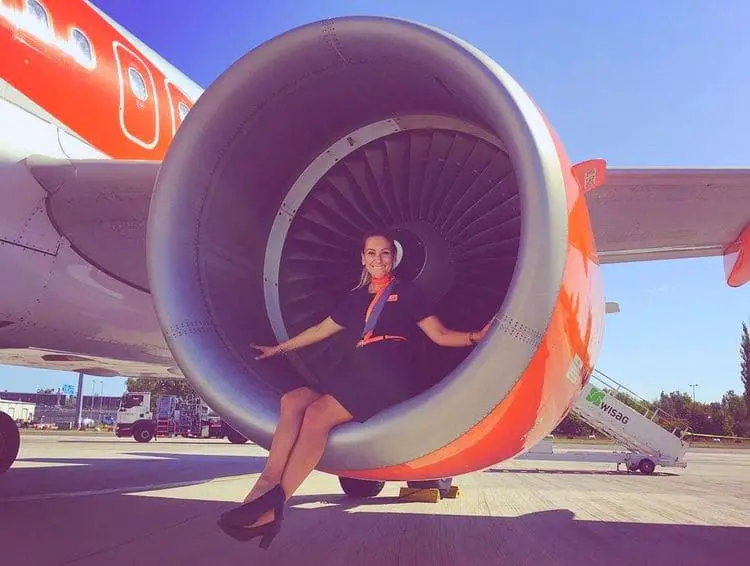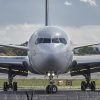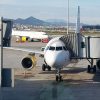People make assumptions all the time. Most of the time they are wrong. I got the sense that this is especially true when it comes to the assumptions people have about flight attendants.
We have a mysterious job that is often depicted in movies, books, and on television. It makes sense people would develop some false ideas about who we are and what we do.
To set the record straight, I’d like to spend some time debunking some of the most common misconceptions people have about flight attendants. (Based on my experience).
Misconception #1: We are sex objects

I blame this misconception on the airline industry of the 1960s and 70s and on Hollywood for perpetuating a vintage depiction of the “coffee, tea, or me” flight attendant.
It’s true that airlines used to hire flight attendants based almost entirely on their sex appeal but we’re in the 21st century now and flight attendants no longer tolerate sexual harassment at works.
Clearly not everyone got this memo though, because we all have our horror stories about uncomfortable encounters with people (men) who still want to believe we are sex objects for them to objectify and treat inappropriately.
Misconception #2: We are uneducated
Although it is not required, plenty of flight attendants have university degrees. Yet some people treat us like we are uneducated and stupid.
Most of the time, this assumption is expressed when people act shocked when we tell them we did, in fact, go to university, but one time a passenger event went so far as to blatantly protest my instructions saying, “you can’t tell me what to do, you don’t even have a college degree.”
To which I just smiled and replied, “Actually I have two.”
Of course, all flight attendants deserve to be treated with respect regardless of their educational backgrounds, but the misconception that flight attendants are uneducated is simply false.
Misconception #3: We get to see the world while working

Most of the time flight attendants do their real world-seeing while on vacation.
Sure, I flew to Rome, and Munich, and Paris, and London, and a ton of other interesting international destinations while working, but since our layovers tend to be quite short it is hard to really “see” these places while on work trips.
Most of the time we arrive having worked all night, so barring a few truly hardcore crew members, most of us don’t have the energy to explore our destinations on layovers.
In reality, most of us go grocery shopping while on international layovers.
Misconception #4: We don’t fly for very long
To be honest, I made this assumption before becoming a flight attendant too. I assumed being a flight attendant was a job you did temporarily while you were young, energetic, and adventurous.
As it turns out, plenty of people are career flight attendants who work for the airline for thirty-plus years. Of course this depends on the airline you work for, but in the US most flight attendants end up staying in the airline industry.
The job “gets in your blood” and it becomes really hard to leave it to do something else, even if that was what you always intended to do.
Had it not been for the pandemic, I too, would likely have given up my dreams of going to grad school to continue flying.
Misconception #5: We are paid during boarding
If you are a frequent reader, you may have noticed that I have been bringing this up a lot lately, because it is important. Flight attendants are not paid during boarding.
This seems to shock non-airline people when they find out about it because people assume we are being paid during boarding, and I don’t blame them, it makes sense because we are at work after all.
But this misconception often leads to passengers making really unfair demands of us during an already stressful phase of flight, all while unpaid.
Misconception #6: We are just sky waitresses
Flight attendants are highly trained safety professionals, but since passengers (thankfully) don’t get to see this side of the job very often, they tend to hold the misconception that we are “just” glorified sky waitresses.
Before becoming a flight attendant myself I never would have known just how highly trained flight attendants really are. So to clear up this misconception here is a quick list of the skills we are taught before taking to the skies:
- Aircraft evacuation: we are trained to evacuate every aircraft we might work on in 90 seconds or less. When I went to training this meant passing drill exams for 14 different aircrafts.
- First aid: in addition to basic first aid skills we are taught to identify various different medical conditions and respond appropriately. So we are well equipped to preform CPR, administer EpiPens, and recognize the sings of strokes, seizures, and diabetic shock, among other things.
- Survival: in the event the aircraft lands somewhere unexpectedly remote we are taught basic survival skills to help keep survivors alive until help arrives.
- Anti-terrorism: I can’t say much about how we are trained for these situations because it’s literally classified but suffice it to say we get more training on this than your average wait staff.
- De-escalation tactics: We are trained to de-escalate agitated passengers to prevent dangerous situations from arising when people experience air rage, or other types of extreme mental states.
During my six-week training course, we spent a total of maybe 8 hours on learning how to do in-flight beverage and meal service. So, even though it’s the thing passengers see us do the most, it’s the least important part of our jobs.
Conclusion
Flight attendants have long captured people’s imaginations, unfortunately many people have misconceptions about who we are, what we do, and what our jobs entail.
Did any of these debunked misconceptions surprise you?




